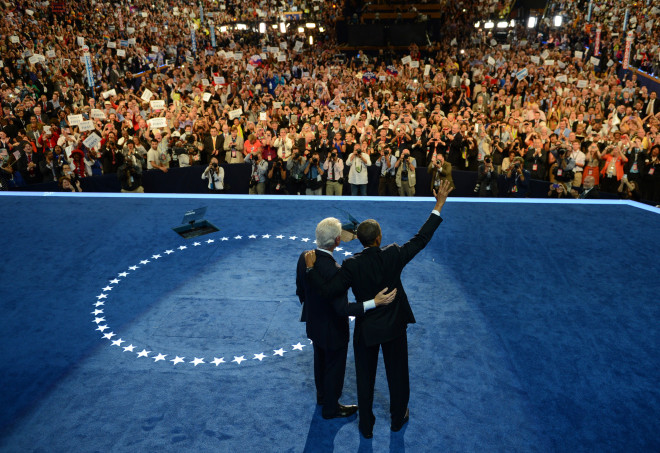The Return of Bubba: What Barack Can Learn from Bill’s Latest Comeback
On the second night of the Democratic National Convention, former President Bill Clinton delivered a highly anticipated speech formally nominating Barack Obama as the party’s candidate for president. With his passionate defense of Obama, withering criticism of intransient Republicans, and folksy proclamations on complex policy issues, the former president thoroughly energized the thousands of attendees at the Time Warner Cable Arena and the millions of sympathizers watching at home. By the time he walked off the stage, President Clinton had become the single most revered figure of the 2012 election.
This represents an improbable turn of events. In a Pew Research Center poll released following the convention, a plurality of twenty-nine percent of respondents named Clinton’s speech, ahead of the President’s and First Lady’s, the highlight of the event. Nielsen ratings showed that the speech attracted more viewers than the opening game of the National Football League, which was being broadcast simultaneously. And in a New York Times/CBS survey released the following week, President Clinton saw his approval ratings climb to 66%, higher than at any point during his presidency. But the numbers themselves do not reveal just how stunning a phenomenon this was. Most surprisingly, many Republicans, once bitter rivals of Clinton, heaped praise upon his performance to draw contrasts between the former and the current president. Mitt Romney stated that Clinton’s speech “elevated the convention”, while Newt Gingrich praised it as “eerily anti-Obama.” Rather than attack President Clinton, Republicans began playing up his popularity and trying to pin it against President Obama.
Thus, one of the most polarizing figures in recent American political history has become one of the country’s most universally admired leaders. And the reasons why are likely instructive to President Obama as he pursues a second term.
First, with unemployment still hovering around eight percent and mounting federal debt, the Clinton era of the 1990s has become increasingly perceived as the halcyon days of the American economy. Accordingly, Clinton is now prominently viewed as a fiscally responsible Democrat who was able to negotiate a series of balanced budgets with a hostile Republican Congress. For President Obama, who has been infamously unsuccessful in this regard, endorsing a serious plan to reduce the deficit could ameliorate his reputation on fiscal matters. Second, Clinton expertly weaved together complicated policy with common sense politics. President Obama, who often ineffectively markets many of his policies, must find ways to better connect with the American public in order to win broad, bipartisan support for his agenda.
Apart from specific policy, there is the mere fact that Clinton is still this popular and relevant. Of course, President Clinton’s political career has been incredibly turbulent. He was strongly repudiated in the 1994 midterms, only to convincingly win re-election in 1996; he soiled his reputation during the Lewinsky scandal, only to successfully rebrand himself as a philanthropist and humanitarian; and he enraged multiple Democrats with inflammatory rhetoric during the 2008 primaries, only to emerge as the most effective campaign surrogate for Obama in 2012. Some of this can be chalked up to Clinton’s perseverance and unmatched political skill. But it is also a testament to an American electorate that is almost always willing to give second chances.
Obama’s first four years as President have not always been easy. As he stands for re-election, it seems that his brightest days as a public figure came and went four Novembers ago. But if Clinton’s latest comeback can tell us anything, it is that legacies are not always written after one term, or even one presidency. For an incumbent president whose first term has been flagged by popular disappointment, this might be the most useful lesson of all.
